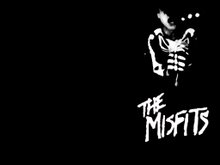I instantly became a fan of his elegant, light-hearted, clear-as-a-bell drawings, and whenever I found old copy of PopSci at a garage sale or used book store, I'd tear through it until I found his two-page cartoon, which he started doing in the early 1950s.
A couple of years ago, I learned that Roy was still actively drawing, for magazines and books. I immediately emailed him and asked him to become the illustrator for MAKE magazine's puzzle page, called Aha! (in homage to another hero of mine, Martin Gardner, who wrote two books I treasure: Aha! Insight and Aha! Gotcha, now available in one volume). Roy was happy to oblige, and has illustrated the column ever since. I can't tell you how exciting it is to get the faxes with his rough sketches for the column. Of course, he needs no art direction; he knows exactly how to illustrate the puzzles.
Every year, Roy sends out whimsical Christmas cards, and this year's is a masterpiece -- a Mousetrap / Rube Goldberg-style holiday celebration machine. Link
Newcomb's Paradox: what would you do?
Franz Kiekeben (who is a very funny cartoonist) does a nice job of describing Newcomb's Paradox, which I've enjoyed contemplating, on and off, for many years.
A highly superior being from another part of the galaxy presents you with two boxes, one open and one closed. In the open box there is a thousand-dollar bill. In the closed box there is either one million dollars or there is nothing. You are to choose between taking both boxes or taking the closed box only. But there's a catch.What would you do? Please read the rest of Kiekeben's essay before offering your reasoning. LinkThe being claims that he is able to predict what any human being will decide to do. If he predicted you would take only the closed box, then he placed a million dollars in it. But if he predicted you would take both boxes, he left the closed box empty. Furthermore, he has run this experiment with 999 people before, and has been right every time.
What do you do?
On the one hand, the evidence is fairly obvious that if you choose to take only the closed box you will get one million dollars, whereas if you take both boxes you get only a measly thousand. You'd be stupid to take both boxes.
On the other hand, at the time you make your decision, the closed box already is empty or else contains a million dollars. Either way, if you take both boxes you get a thousand dollars more than if you take the closed box only.

